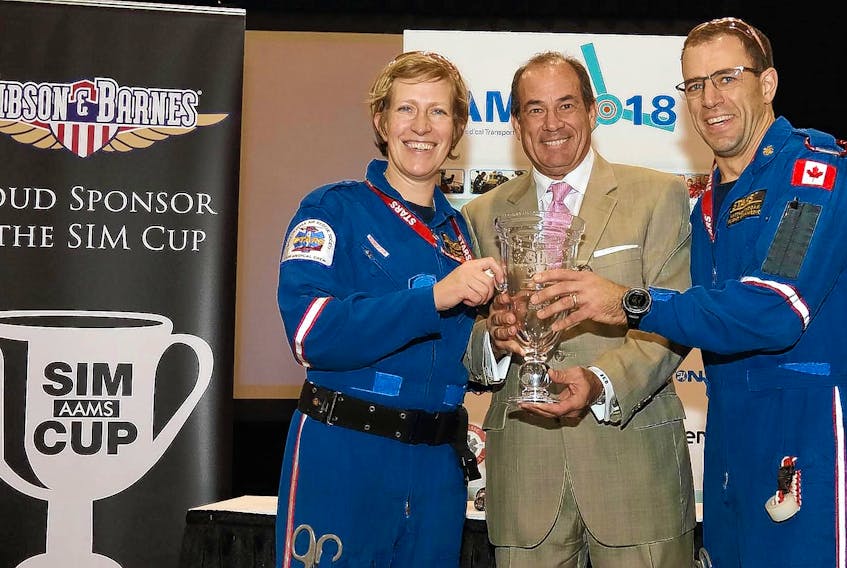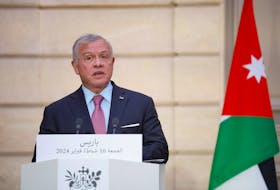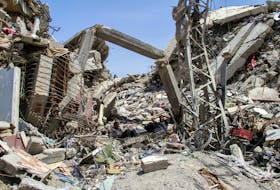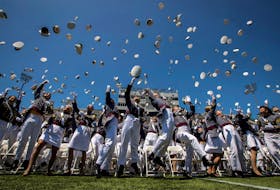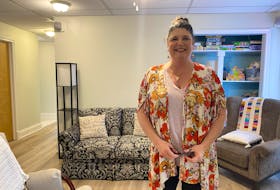Matthew Hogan stood in the Arizona desert, taking in the scene around him.
One victim was already dead. Two others were critically injured. He could feel his heart rate spiking.
Then he heard a thump behind him. He turned. The woman had collapsed. Blood was gushing from her neck.
“There’s a park ranger who’s there for the whole call, and he’s not exactly being helpful,” Hogan recalled.
“You realize she had an impaled object in her neck and he removed that.”
Three minutes and a breathing tube later, Hogan and teammate Jenny Thorpe were handed a trophy.
This was one of challenging scenarios that were thrown at them at the 2018 Sim Cup in Phoenix, all designed to improve their skills for actual emergencies.
“I think that can only make you better when you’re dealing with your real patients,” said Hogan, a critical care paramedic for STARS air ambulance in Saskatoon.
“That’s the way they always set up those cases. They give you a complex medical case but throw in other challenges. In the back of your mind, you’re thinking, ‘OK, what else are they going to add in?’ … You’re always waiting for the other shoe to drop.”
- Matthew Hogan
A former head of the Paramedic Association of P.E.I., Hogan moved to wheat country in 2011.
He and Thorpe, a critical care nurse, won the STARS Western Canada competition in June, qualifying them for the international event in Arizona.
“We’re pretty lucky to come from an organization like STARS,” Hogan said. “We really feel like we’ve got some of the best education around, going into our regular job.”
The pair practised just about every situation they could think of. Proper communication was a big part of it, said Hogan.
“No matter what was going on in the scenario, we tried to make sure we were communicating, and we received some really positive feedback about that from the judges afterward.”
There were some nerves going into the simulation, Hogan said, pointing out STARS has made the final 16 years in a row.
“So no pressure, right?”
Hogan and Thorpe had to get through two preliminary scenarios before making the final along with three other teams.
One of them involved a child with severe head trauma after a dirt bike accident. The child also had a collapsed lung and internal bleeding, and the paramedics had to intubate him and give him blood and medication.
“At the tail end of the 15 minutes, one of the other rescuers collapses and goes into cardiac arrest, so you have to manage him at the same time.”
There was also a family of bystanders making the professionals’ jobs harder, Hogan said, including a drunk dad.
“That’s the way they always set up those cases. They give you a complex medical case but throw in other challenges.
“In the back of your mind, you’re thinking, ‘OK, what else are they going to add in?’ … You’re always waiting for the other shoe to drop.”
But, it all helps when it comes time to save lives.
“We’ve done a few real calls lately that were quite busy and with some pretty sick patients. We kind of looked back and said, yeah, we felt like those went really well because we’ve been practising our communication so much.”

